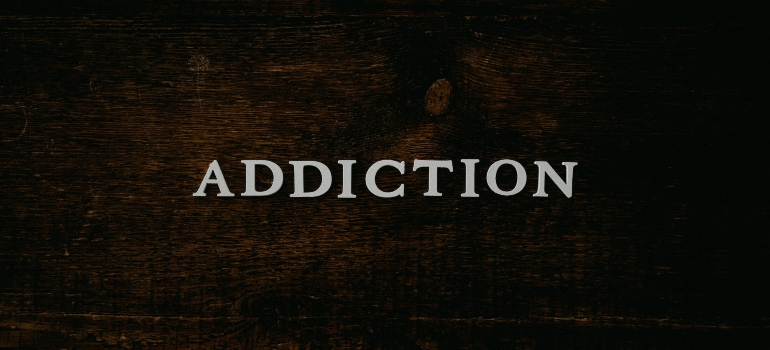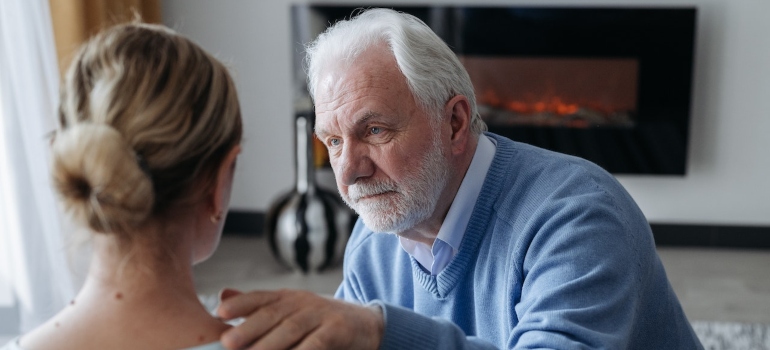Building Empathy: How to Connect With an Addicted Loved One
Get Help Now
Every day, countless lives are impacted by the pervasive disease of addiction. Its devastating effects are felt not just by the individuals battling it but also by the people who love them. The journey to drug rehab can seem overwhelmingly daunting for those trying to connect with an addicted loved one.
Witnessing a loved one entangled in addiction is a painful ordeal, often marked by feelings of confusion, heartache, and a pervasive sense of helplessness. The disease of addiction is not a solitary affliction; it ripples out, affecting parents, children, spouses, and friends, all of whom are grappling to reel their loved ones back from the precipice. In the midst of this turmoil, empathy emerges as a beacon of hope. The ability to understand and share another’s feelings and experiences, can become a guiding light in the challenging journey of recovery.
This article delves into the crucial role of empathy in the recovery process – offering insights into the realities of addiction, the transformative power of empathy, and practical ways to foster it in our interactions with an addicted loved one. Through empathy, we can bridge the misunderstanding, counteract stigma, and open a pathway toward healing and recovery. So join us as we discover the best ways to help your loved ones defeat this horrible disease!
Understand That Addiction Is A Major Issue – You
Addiction is a complicated and multi-faceted disease that goes far beyond a simple choice. It’s a chronic disorder characterized by compulsive drug seeking, use, and a significant lack of control despite harmful consequences. It involves changes in the brain’s wiring, particularly in reward, motivation, learning, and memory, which lead to behavioral changes often noticeable to friends and family.

Recent statistics paint a sobering picture of the prevalence of addiction in the United States. According to the National Institute on Drugs and Addiction (NIDA):
- In 2022, approximately 20.4 million American adults battled a substance use disorder.
- About 14.5 million individuals suffer from alcohol use disorder.
- An estimated 8.3 million adults have a drug use disorder.
- More than 2 million individuals had an opioid use disorder, with the use of synthetic opioids surging.
Here in Florida, the situation is no less severe:
- Over 1.5 million adults reported having a substance use disorder.
- The state witnessed a significant increase in drug overdoses, particularly involving opioids.
These statistics emphasize that addiction is not a fringe issue but a significant public health crisis affecting millions of individuals and their loved ones.
When a Loved One is Addicted – Empathizing with the Struggle
When your loved one is part of these daunting statistics, it changes the narrative from an abstract crisis to a deeply personal struggle. Seeing them caught in addiction’s grip and seeking help at Archstone Behavioral Health can be challenging and emotionally draining, leading to feelings of frustration, fear, and helplessness. But it’s important to remember that your loved one is not willingly making destructive choices; they are struggling with severe disease.

Therefore, now it’s not the time to judge but to step up and support your addicted loved one in their journey to recovery. So let’s learn how to use empathy to break down the barriers to effective communication, forge deeper connections, and offer hope for recovery. From understanding the mechanisms of empathy to strategies for its cultivation, we’ll provide a guide on how to connect with an addicted loved one in a meaningful way.
#1 Embracing Empathy – The Best Way to Connect With an Addicted Loved One
Empathy, the ability to understand and share the feelings of another, is more than just an emotional response. In the context of addiction recovery, it can be a lifeline for those navigating the often tumultuous journey toward sobriety. At its core, empathy bridges the gap between people, facilitating a deep and genuine connection. It’s a process that involves active listening, offering non-judgmental understanding, and expressing sincere concern for the individual’s wellbeing.
Furthermore, empathy can counteract the feelings of isolation and loneliness that many individuals with addiction experience. After all, addiction can create a divide between the individual and their social network. By approaching them with empathy, you signal your willingness to step into their world to understand their feelings, thoughts, and experiences from their perspective.

This deep level of understanding is not just a moral imperative. Scientific research underlines the significance of social connections in addiction recovery. Studies have demonstrated that strong social support can improve treatment outcomes. The logic behind this is twofold:
- Boosts motivation: Having a support network that empathizes with their struggle can motivate individuals with addiction to seek treatment and persevere through its challenges.
- Acts as a buffer: Social support can buffer the effects of stress, a common trigger for relapse, thereby reducing the risk of returning to substance use.
#2 Overcoming Barriers – Fostering Empathy Against the Odds
Navigating the landscape of addiction is not without its emotional roadblocks. Anger, fear, and blame are common responses when faced with a loved one’s substance abuse. These emotional reactions, while understandable, can often erect barriers to empathy, disconnecting us from the ones we wish to support.
Overcoming these barriers begins with a shift in perspective. Always remember addiction is a disease, not a choice. It’s as real and as challenging as any other health issue. Hence, empathy should be our response, not resentment or fear. A loved one undergoing drug detox in Florida, for instance, needs understanding and support, not blame.
Breaking Down Stigma – A Step Towards Understanding
The societal stigma around addiction is another hurdle in fostering empathy. The unfair labels and misconceptions surrounding substance abuse can create a wall of misunderstanding, pushing the afflicted further into isolation.

Combatting this stigma starts with us. Educating ourselves and others about addiction can help reshape societal perceptions and nurture an environment of empathy and support. We can become the catalyst for a more compassionate approach toward understanding addiction, thereby encouraging those affected to seek the help they need without fear of judgment. This newfound understanding can drive a more empathetic response, thereby encouraging the affected individuals to embark on their recovery journey.
#3 Tools of Empathy – Building Bridges, Not Walls
To foster empathy, we need to equip ourselves with the right tools. This involves learning how to communicate effectively, listen actively, and express genuine concern without enabling harmful behaviors. Active listening is about hearing the words spoken and recognizing the emotions and experiences behind them. By doing so, you can better understand your loved one is struggles, such as the complex process of Florida medical detox, and provide them with the emotional support they need.
Expressing Empathy – Providing Support Without Enabling
However, providing empathetic support does not mean enabling addictive behavior. It’s about recognizing the fine line between support and enablement. This can often be challenging when the person you care about is dealing with a severe addiction that may require admission to an inpatient alcohol detox center in Florida. In such instances, your support should be directed towards encouraging them to seek professional help and providing emotional backing during their recovery journey.

Maintaining your emotional health during this process is crucial, too. It’s important to remember that while you can provide support, you’re not solely responsible for their recovery. Their journey to sobriety is their own, and they have to make the decision to walk it. By striking the right balance, you can express empathy and offer support without losing yourself in the process. It’s easy to get too involved and start losing yourself and respect for your time in the process. So keep reminding yourself of self-care’s importance, and don’t shy away from taking a break when you need it. After all, how can you expect to inspire someone to start taking better care of themselves if you don’t set a positive example yourself?
#4 Navigating Treatment and Recovery with Empathy – A Compassionate Journey
Understanding addiction treatment and recovery phases is crucial for those seeking to support a loved one in their journey toward sobriety. The process typically begins with detoxification, often facilitated by specialized centers like a drug detox in Florida, where individuals are safely weaned off the substance under medical supervision. This phase is then followed by a more comprehensive rehabilitation phase, like the programs offered by our drug rehab here in Lantana.
Throughout this journey, empathy plays an essential role in providing a support system for the individual. One key way to exhibit this is by accompanying them through their treatment and recovery journey, reinforcing their commitment to overcoming addiction.
Family Intervention – A Step Towards Recovery
At times, it may be necessary to take more direct action, like planning a family intervention. Such a step should not be an ambush but an empathetic conversation where the family expresses their concern about the loved one’s substance use. It’s about making them understand the impact of their addiction on themselves and those around them and urging them to seek help.
During such interventions, empathy should be at the forefront. It’s essential to communicate your concerns without blame, offering support and understanding instead. By focusing on empathy during the intervention, we can help our loved ones realize they are not alone in their battle against addiction and there are people ready to support them every step of the way. On the other hand, if you use shaming and blame to make your addicted loved one feel guilty, you’re more likely to cause the opposite effect and push them further down into their addiction. Keep this in mind if you choose to have an intervention for your loved one.
Path Towards a Better Tomorrow – A New Dawn
During addiction and recovery, empathy is an unseen bridge linking us to our loved ones battling this disorder. It’s more than a mere emotional response – it’s a transformative tool that enables us to step into their world, understand their struggles, and truly connect with an addicted loved one.
Even when the journey becomes challenging, even when you’re confronted with situations such as witnessing your loved one experience harsh withdrawal symptoms or needing delirium tremens treatments, empathy can be your beacon. It allows you to remain patient, supportive, and understanding, continually reinforcing the belief that recovery is possible.
Empathy does more than comfort. It communicates a powerful message – you’re not alone. This sense of shared struggle, understanding, and hope can often be the difference between surrender and the strength to carry on. And as we conclude our exploration, let’s remember that empathy isn’t a finite resource but a skill that we can cultivate and grow. It’s the core around which support systems are built, interventions are planned, and recovery becomes a shared journey. So, let us extend our empathy to those in need. It could well be the lifeline that pulls someone out of the depths of addiction and into the light of recovery.